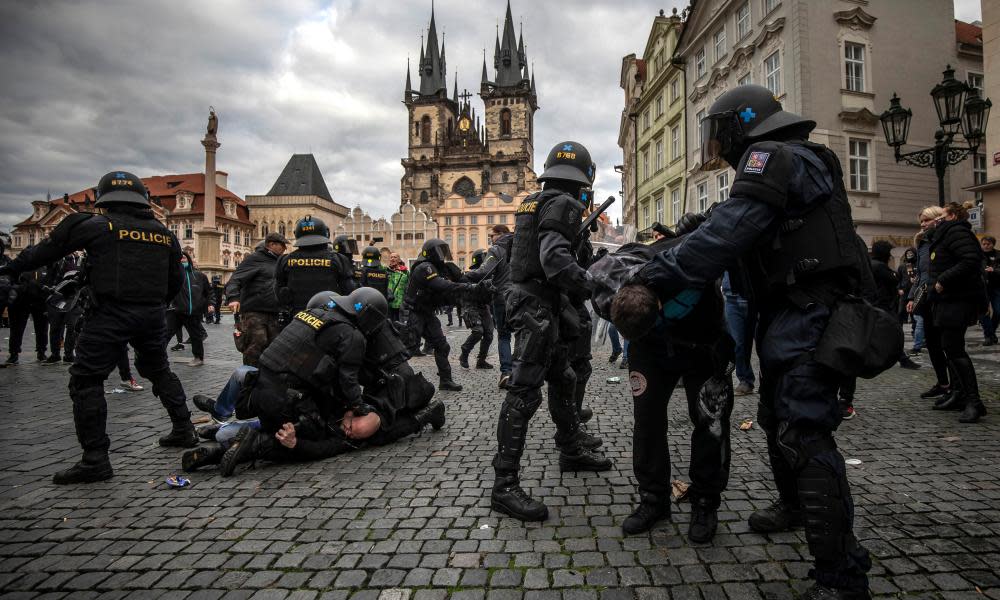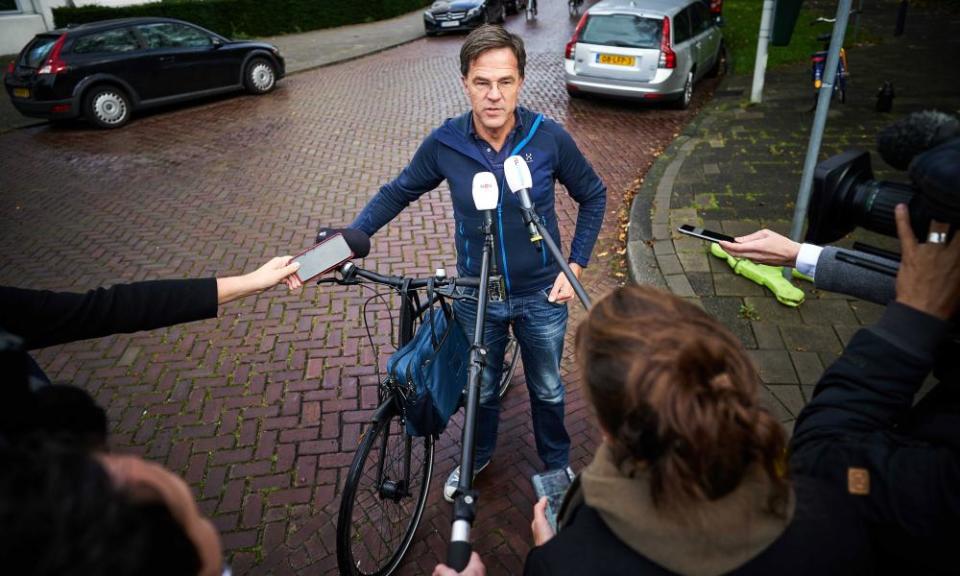Covid in Europe: protests in Czech Republic, Ireland to toughen rules

Police fought anti-mask protesters in the Czech Republic, Ireland prepared to announce tough new restrictions and Switzerland made masks mandatory indoors as European governments struggled to contain continuing record Covid case numbers.
As Italy on Sunday reported 11,705 new infections over the past 24 hours, its largest ever figure, and France on Saturday set a new high of 32,427 cases, police in Prague’s historic tourist district fired teargas and water cannon after demonstrations against strict anti-coronavirus restrictions turned violent.
Riot officers flooded into the Czech capital’s Old Town Square with horses and armoured vehicles after protesters among an estimated crowd of 2,000 hurled missiles, including beer bottles, cans and bicycles, and set off firecrackers.
Sunday’s rally was organised by so-called ultra football and ice-hockey fans angry at the increasingly strict limitations introduced in response to the soaring number of cases in the Czech Republic, currently the worst-hit in Europe by head of population.
default
The country on Friday reported a record 11,105 cases and another 8,713 on Saturday. In the past week, bars and restaurants have been ordered to close except for takeaways and schools have been shifted to distance learning. Shops remain open.
Nonetheless, the country will wait at least two weeks before deciding whether to order a full lockdown to stem its epidemic, said the deputy prime minister, Karel Havlíček.
Ireland’s higher education – and former health – minister, Simon Harris, said the government would bring in “decisive” nationwide restrictions on Monday but would stop short of reintroducing the kind of lockdown imposed earlier this year.
“The government will act tomorrow, the action will be decisive and it will be nationwide,” Harris said. “Tomorrow we will have to bring in more restrictions. It’s clear now that the virus is at such a level within all our communities, the county-by-county approach will not be sufficient.”
Switzerland’s government announced new restrictions would come into force on Monday, including a ban on gatherings of more than 15 people in public places and mandatory masks in all indoor public places including cinemas and shops.
Masks will also be required in train stations and airports, as well as on public transport. Homeworking is recommended, the government said, while customers will have to be seated to be served in restaurants and bars.
The measures come amid a rapid rise in cases, with daily reported infections up 150% compared with the previous week. “The sharp increase in the number of contaminations in recent days is worrying. Indeed, it concerns all age groups and all cantons,” the government said in a statement.
default
Germany’s chancellor, Angela Merkel, urged citizens to stay at home whenever possible after 7,830 cases emerged over 24 hours. “What will determine winter and our Christmas will be decided in the weeks ahead,” she said.
In the Netherlands, which last week closed all bars and restaurants for a month as part of a string of measures to contain soaring infections, the prime minister said he made a “wrong assessment” by failing to stop the king going on holiday.
King Willem-Alexander and Queen Máxima cut short their holiday on Saturday a day after flying to Greece, saying they had taken onboard the “intense” public reaction. In a letter to parliament on Sunday, Rutte said he had been aware of the king’s plans but should have raised the matter with the monarch.
“I realised too late ... that the intended holidays, which had met [previous] regulations, could no longer be reconciled with the increasing infections and stricter measures.”

After the World Health Organization reported a “very concerning” 44% rise in European cases over one week, Poland and Belgium also announced daily record caseloads on Saturday, as Paris and eight other major French urban centres that are home to about 20 million people entered at least a month of night-time curfew.
Global cases of the disease, which has killed more than 1.1 million people around the world, have been soaring beyond levels seen in the first wave earlier this year – although the numbers cannot be directly compared because of the recent advent of mass testing.


